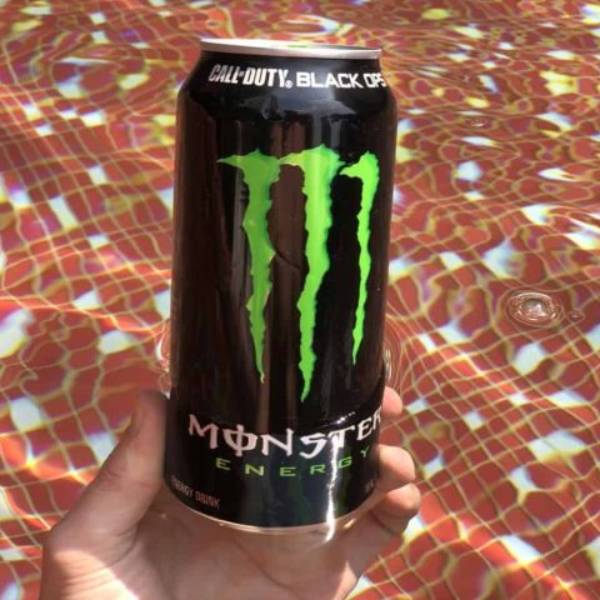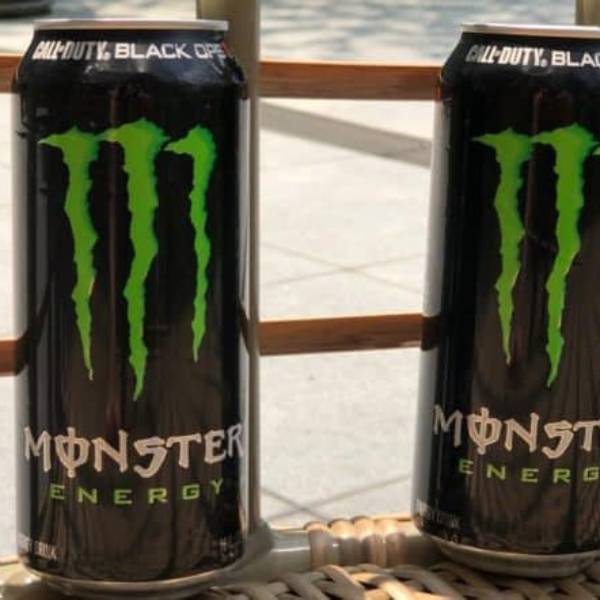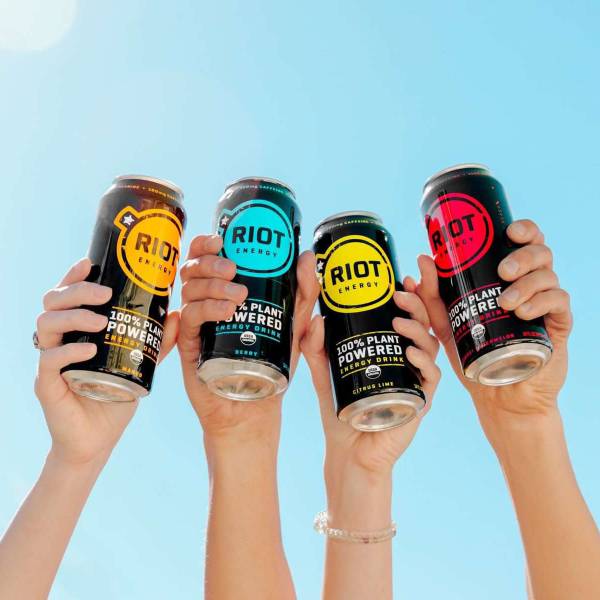Monster Energy drinks have gained immense popularity among young adults and teenagers. Their vibrant packaging and enticing flavors catch the eye. However, concerns are rising about their health implications. This article explores how bad are Monster Energy drinks from various angles, including ingredients, health risks, and the overall impact on consumers.

How Bad Are Monster Energy Drinks in Terms of Caffeine?
Caffeine Content in Monster Energy Drinks
Monster Energy drinks are notorious for their high caffeine content, which can reach up to 160 milligrams per can. This level significantly surpasses the daily recommended caffeine limit for younger individuals. The potential for overconsumption poses a risk, as excessive caffeine can trigger anxiety, insomnia, and rapid heart rates. For those with a low caffeine tolerance, even a moderate amount can have detrimental effects. It’s imperative to be mindful of caffeine intake, particularly among populations that are more susceptible to its adverse effects.
The Importance of Monitoring Caffeine Intake
Given the potential health risks associated with high caffeine levels, monitoring one’s consumption is essential. For individuals following a carnivore diet or any restrictive diet, being aware of caffeine sources is crucial. The high caffeine content in energy drinks like Monster can quickly lead to overconsumption, especially if they are used as a dietary supplement. It’s advisable to limit intake and consider the overall caffeine content in one’s diet, which may include coffee, tea, and other caffeinated beverages. For the health and well-being of all, especially vulnerable groups such as children, adolescents, and those with pre-existing conditions, it’s crucial to stay within the recommended caffeine limits and seek alternatives when necessary.
How Bad Are Monster Energy Drinks When It Comes to Sugar?
The Sugar Content in Energy Drinks
Energy drinks, particularly Monster Energy, are known to contain high levels of sugar. A standard can may pack around 54 grams, surpassing the daily recommended intake for adults. This excessive sugar content poses health risks, including obesity, Type 2 diabetes, and heart disease. The initial energy boost from sugar is often followed by a crash, which can result in fatigue and a lack of focus. It’s clear that for sustained energy and overall health, reducing sugar consumption is vital.
The Need to Reduce Sugar Intake
The high sugar content in energy drinks highlights the importance of being mindful of sugar intake. For adults and young individuals alike, exceeding the daily recommended limit can have serious health consequences. To maintain good health and avoid the negative effects of sugar, it’s essential to make informed choices about beverage consumption. Opting for drinks with lower sugar content or choosing water and other unsweetened beverages can help prevent the energy spikes and crashes associated with high sugar intake. By being proactive about sugar consumption, individuals can safeguard their health and well-being.
How Bad Are Monster Energy Drinks for Hydration?
The Dehydrating Effects of Monster Energy Drinks
Monster Energy drinks, like many caffeinated beverages, can adversely affect hydration. Caffeine’s diuretic properties can trigger increased urination, leading to fluid loss. This diuretic effect may exacerbate dehydration, particularly when engaging in physical activities. The misconception that energy drinks enhance performance is prevalent; however, they might actually detract from it due to their impact on hydration levels. For optimal performance and health, it’s crucial to prioritize proper hydration through water intake, which is essential for everyone, including athletes.

Prioritizing Hydration Over Energy Drinks
The potential for energy drinks to impair hydration underscores the need to prioritize water as the primary source of hydration. While energy drinks may offer a temporary boost, their long-term effects on hydration can be detrimental. Athletes, in particular, should focus on maintaining adequate water intake to support peak performance and prevent the negative consequences of dehydration. By choosing water over energy drinks, individuals can ensure they are meeting their bodies’ hydration needs, which is fundamental for maintaining concentration, energy levels, and overall health.
How Bad Are Monster Energy Drinks for Mental Health?
The Impact of Monster Energy Drinks on Mental Health
Monster Energy drinks, with their high caffeine content, can significantly affect mental health. They may lead to anxiety and stress due to the stimulating effects of caffeine. The rapid energy spikes followed by crashes can contribute to mood swings, which can be particularly challenging for those with pre-existing mental health conditions. It’s important for individuals, especially young people and those sensitive to caffeine, to be aware of these potential effects and consider healthier alternatives to maintain mental well-being.
The Need for Caution with Energy Drink Consumption
The consumption of energy drinks like Monster should be approached with caution, particularly due to their potential impact on mental health. High caffeine levels can exacerbate anxiety and stress, and the subsequent energy crashes can lead to mood instability. Over time, regular consumption may increase tolerance, potentially leading to a dependence on these drinks for energy and focus. It’s crucial to prioritize mental health and explore alternatives to energy drinks, such as moderate caffeine intake from coffee or tea, or adopting healthy lifestyle practices that promote natural energy and focus. For those who choose to consume energy drinks, it’s advisable to do so in moderation and be mindful of the total caffeine intake from all sources.
How Bad Are Monster Energy Drinks During Exercise?

The Impact of Energy Drinks on Health
Energy drinks, such as Monster, are popular for their ability to provide a quick energy boost. However, they can have significant effects on health, particularly when consumed in excess or by vulnerable populations like children. High caffeine levels in these drinks can lead to a range of issues, including seizures, heart problems, and other life-threatening conditions.
Among the Worst Energy Drinks, Monster stands out for its potential to cause severe health repercussions, especially in children and those with heightened sensitivity to caffeine, due to its high caffeine content that can trigger seizures and heart issues.
More than 5,000 calls involving problems with energy drinks were received by Poison Control Centers in the United States between October 2010 and September 2013, with a substantial number involving children under the age of 6. The risks associated with energy drinks highlight the importance of moderation and awareness of their contents.
Responsible Consumption of Energy Drinks
Given the potential health risks, it’s crucial to consume energy drinks responsibly. Adults should be cautious about their intake, especially if they have underlying health conditions or are taking medications that could interact with caffeine. Children and teenagers should generally avoid energy drinks due to their sensitivity to caffeine and the potential for adverse effects.
Given the potential health risks associated with energy drinks, it’s essential to consume them responsibly. Adults should be cautious about their intake, particularly if they have underlying health conditions or are taking medications that could interact with caffeine. For the Energy Drinks with Most Caffeine, such as Bang Energy, which contains 300 mg per 16 ounces, or Rockstar Xdurance with 320 mg per 16 ounces, moderation is key.
The American Heart Association has warned about the risks of allowing young children access to energy drinks, which contain high amounts of caffeine and other stimulants. Educating consumers about the contents of energy drinks and promoting responsible consumption can help mitigate the risks associated with these beverages.
How Bad Are Monster Energy Drinks for Teens?
Teenagers are among the highest consumers of energy drinks like Monster. This demographic faces heightened risks due to their developing bodies. The influence of advertising often misleads young people into believing these drinks are safe. Parents should educate their children about the potential dangers. Strategies for healthier energy alternatives should be encouraged.
Teenagers, who are among the highest consumers of energy drinks like Monster, face heightened risks due to their developing bodies. The influence of advertising can mislead young people into thinking these drinks are safe. It’s crucial for parents to educate their children about the potential dangers and encourage healthier energy alternatives. The Most Popular Energy Drinks include brands like Red Bull and Monster, which are popular for their quick energy boost, but they can also contain high levels of caffeine and sugar that may not be suitable for young individuals. Parents should be aware of the ingredients and consider alternatives that support their children’s health and well-being, such as natural sources of energy that are lower in caffeine and added sugars.
How Bad Are Monster Energy Drinks for Long-Term Health?
Long-term consumption of Monster Energy drinks raises serious health concerns. Continuous exposure to excessive caffeine and sugar can lead to chronic health issues. Risks include heart problems, digestive issues, and metabolic disorders. It is vital to understand the cumulative effects on the body. Choosing healthier lifestyle options is a better path for sustainable health.
In conclusion, how bad are Monster Energy drinks? While they may offer a temporary jolt of energy, the long-term risks far outweigh the benefits. From caffeine overdose to sugar-related health issues, these drinks can seriously compromise well-being. Making informed choices is essential for anyone, particularly young people. Opting for hydrating beverages and wholesome nutrition is a far better investment in health.